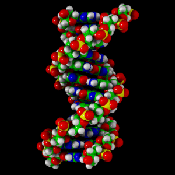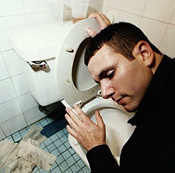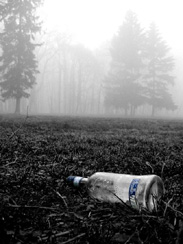Coping with Alcohol Cravings
 Coping with cravings is the key to tackling alcoholism. If you can manage to not give in to your cravings, or you can adapt so that you don’t get so many cravings in the first place, then there is no more addiction is there?
Coping with cravings is the key to tackling alcoholism. If you can manage to not give in to your cravings, or you can adapt so that you don’t get so many cravings in the first place, then there is no more addiction is there?
How you view your own cravings will determine how much power they have over you. If you believe that a craving won’t naturally go away once it has started, or if you think that the only way to deal with a craving is to drink, then of course you will be fairly powerless over them. This is the cognitive component of your addiction.
Making yourself aware of what things in your life tend to give you cravings, and therefore how you might avoid those situations, becomes a vital skill. For those ‘triggers’ that you can’t avoid, you can learn how to deal with them differently.
Lets say there are four types of cravings:
- a reaction to withdrawal symptoms
- escaping from unpleasant feelings (boredom, depression, anxiety etc.)
- a response to a learnt association (people, places etc)
- enhancing a positive mood
Each type requires a different approach to deal with it. And each person’s approach will be unique to them.


 Emotional Intelligence is now a fairly popular term, it refers to your ability to understand and deal with your feelings in an adaptive and mature way. When we let our emotions dominate our behaviour without any awareness, it can become a huge problem.
Emotional Intelligence is now a fairly popular term, it refers to your ability to understand and deal with your feelings in an adaptive and mature way. When we let our emotions dominate our behaviour without any awareness, it can become a huge problem. If substances have been used from an early age, then this often becomes the preferred way of coping with difficult feelings. Obviously, we learn most of these skills from our parents, our siblings or our friends as we grow up. So if these people were not themselves dealing with their emotions very effectively, then that is likely to be what we learnt also.
If substances have been used from an early age, then this often becomes the preferred way of coping with difficult feelings. Obviously, we learn most of these skills from our parents, our siblings or our friends as we grow up. So if these people were not themselves dealing with their emotions very effectively, then that is likely to be what we learnt also. This is not limited to alcoholics of course. However, binge drinkers don’t drink every day, and so they may not consider that they have an alcohol problem.
This is not limited to alcoholics of course. However, binge drinkers don’t drink every day, and so they may not consider that they have an alcohol problem. These are often referred to as ‘safe drinking levels’, but of course no level of alcohol consumption is totally risk-free. The levels are officially described as “…the amounts below which it is unlikely that someone will develop significant illness or an early death”. Pretty vague, I’m sure you’ll agree. But it just illustrates that there is no real way to tell exactly how much you can safely drink. The more you drink, the worse the effects, that’s all you need to know.
These are often referred to as ‘safe drinking levels’, but of course no level of alcohol consumption is totally risk-free. The levels are officially described as “…the amounts below which it is unlikely that someone will develop significant illness or an early death”. Pretty vague, I’m sure you’ll agree. But it just illustrates that there is no real way to tell exactly how much you can safely drink. The more you drink, the worse the effects, that’s all you need to know. Many people who are depressed turn towards alcohol to make them feel better, at least temporarily. Conversely, many people who use alcohol in a dependent way tend to become depressed. The classic chicken and egg situation.
Many people who are depressed turn towards alcohol to make them feel better, at least temporarily. Conversely, many people who use alcohol in a dependent way tend to become depressed. The classic chicken and egg situation. For most people with alcohol problems, they often have a number of unresolved difficulties with life generally.
For most people with alcohol problems, they often have a number of unresolved difficulties with life generally.